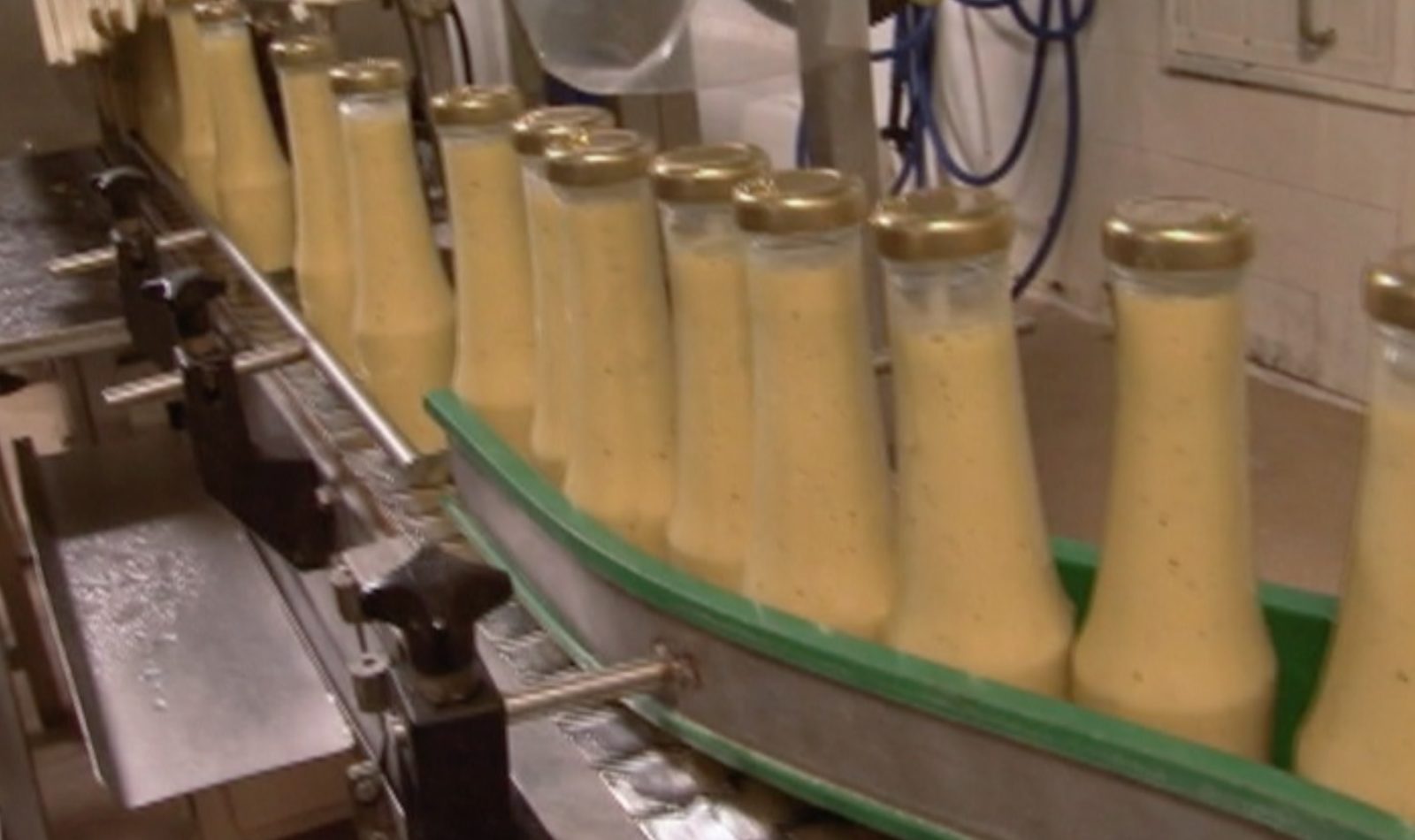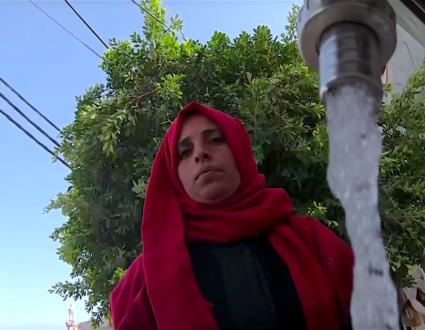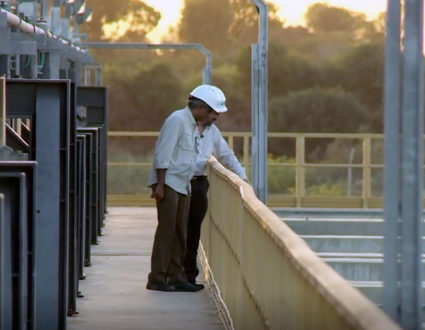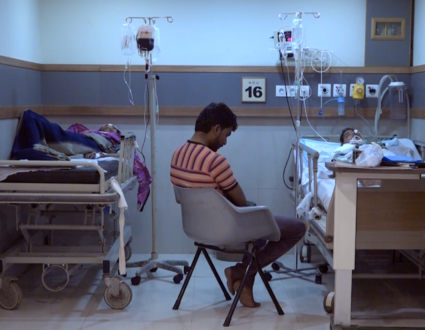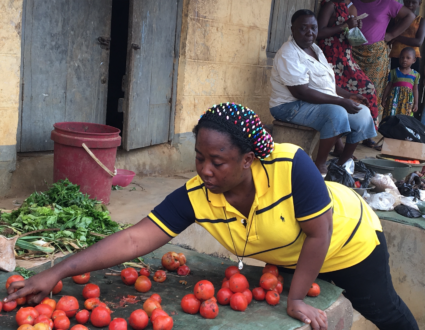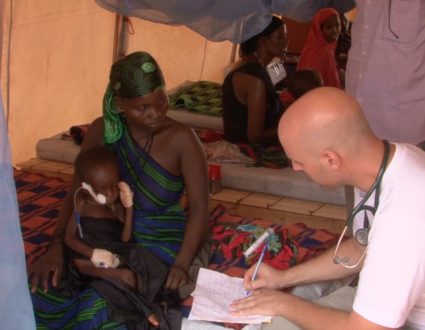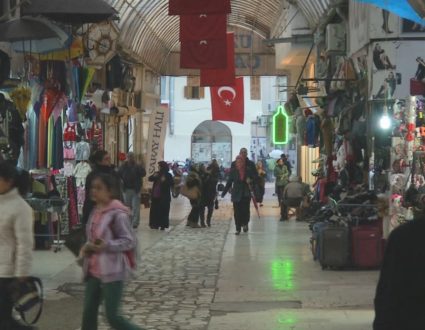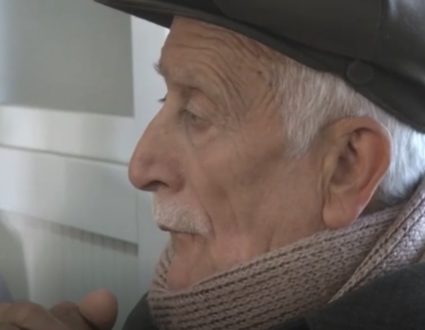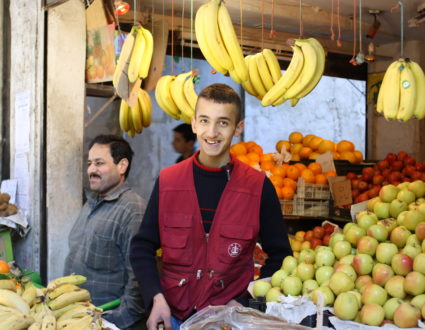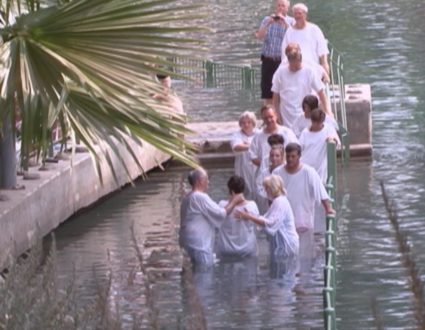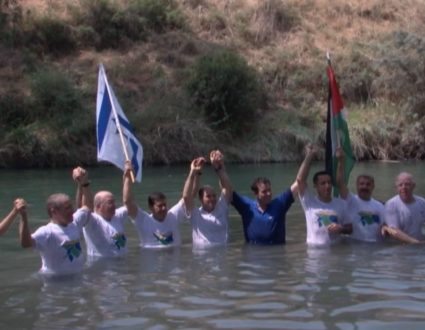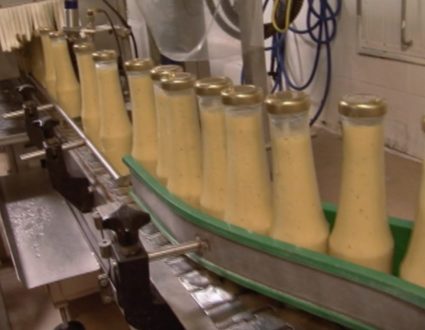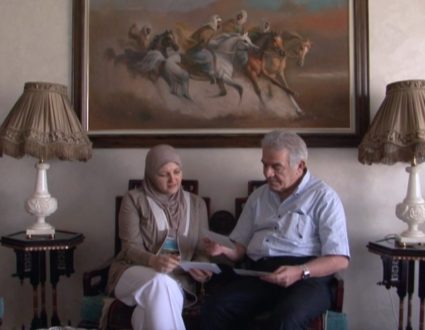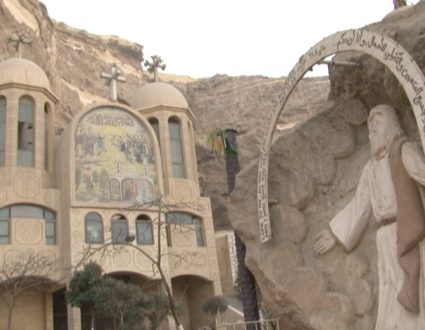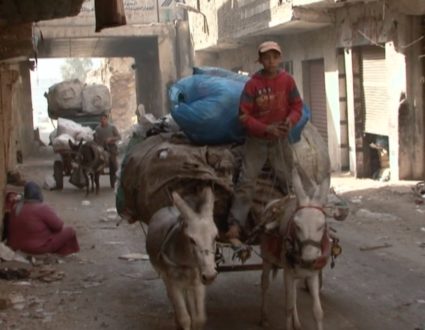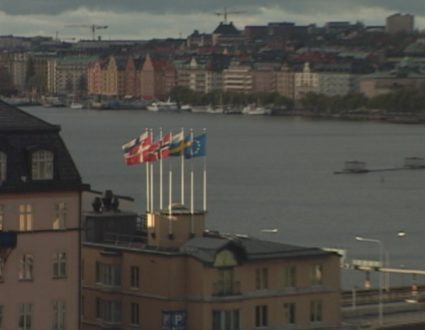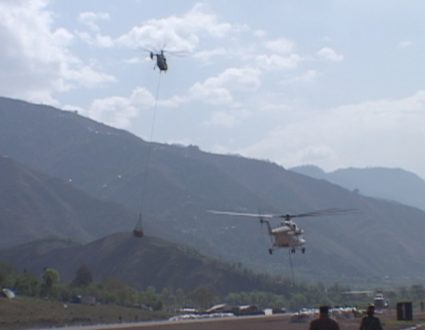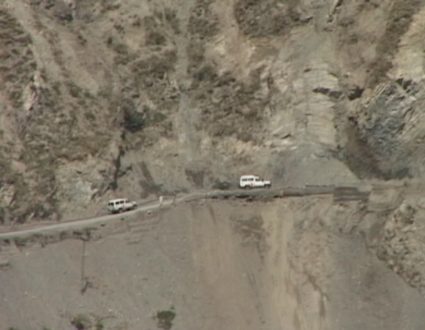JEFFREY BROWN: And from the perspective of a world leader, we turn to that of a businessman struggling to make peace on a smaller scale. Special correspondent Fred de Sam Lazaro reports from Israel.
FRED DE SAM LAZARO: Once upon a time, this factory in central Israel was a small kitchen, selling a few jars of sun-dried tomato spread to delis in Israel. Then, in 1992, founder Yoel Benesh got a visit from Daniel Lubetzky, a recent Stanford law graduate and tomato spread fan.
YOEL BENESH, business owner: We were three people were working at the time, me and another two workers. And he came with a jar that he bought in a supermarket. And he said, this is yours? I said, yes. He said, this is I like the most. I never taste anything like that. Look, this is my idea. He presents all the philosophy of PeaceWorks.
FRED DE SAM LAZARO: Daniel had brought a proposal he wrote in college called PeaceWorks. If Benesh would buy his supplies and ingredients from Israel’s often hostile neighbors, instead of Portugal or Italy, he would sell the product in America.
Did you think he was a little crazy?
YOEL BENESH: In the beginning, yes.
FRED DE SAM LAZARO: But Lubetzky, who grew up in Mexico the son of a Holocaust survivor, made the case that trading with Arab and Muslim neighbors wasn’t just good for peace. It was good business.
DANIEL LUBETZKY, PeaceWorks: It’s closer than Portugal to buy the glasses from Egypt, but also the sun-dried tomatoes are fresher, the olives, the eggplant, the basal. You were also importing the basal (INAUDIBLE) farm in Ujah (ph), which is a Palestinian village.
FRED DE SAM LAZARO: Today, sales have grown to more than a million jars a year.
DANIEL LUBETZKY: We sell in whole foods. We sell in a lot of natural stores, specialty stores, Lunds & Byerly’s.
FRED DE SAM LAZARO: The social message is peace through business ties. Lubetzky has since started other, much larger food businesses, but he calls PeaceWorks a not-just-for-profit enterprise. He’s channeled 5 percent of PeaceWorks’ profits into a grassroots group he started called OneVoice to raise the voice of moderates, he says.
DANIEL LUBETZKY: We’re moving from theory into action. And the first part of the action is actually visualizing what is it that the people are going to do and then helping empower the people to actually start building a two-state solution.
FRED DE SAM LAZARO: OneVoice has several hundred thousand signatures from supporters. Its young volunteers, Palestinian and Israeli, campaign for their vision of peace: an independent Palestinian on land captured by Israel in the 1967 war. The two nations would share a capital in the historic city of Jerusalem.
Also in the OneVoice media campaign are films to fire up its mostly young supporters. This one imagines Israel and Palestine co-hosting the 2018 soccer World Cup.
MAN (through translator): Do you think we will have an independent Palestine?
MAN (through translator): Not as I see the situation now.
FRED DE SAM LAZARO: But as they hit the pavement, video cameras in hand to make more films, OneVoice’s volunteers find a far more pessimistic reality.
WOMAN (through translator): Life is very bad here in Palestine. And the situation is deteriorating because of the wall, because of the settlements which are eating up our land.
FRED DE SAM LAZARO: In the West Bank city of Ramallah, there’s anger over Jewish settlements built on land Israel captured in 1967 and the wall that Israel calls its security barrier, also in-fighting in the Palestinian leadership.
WOMAN (through translator): There is a siege on the people. We have become two peoples, two lands. And we’re taking a passive role in this. We were a people active and alive, but our politicians are standing in the way.
FRED DE SAM LAZARO: Israeli volunteers also met many skeptics. They too cited the bloody power struggle within the Palestinian territories between the Fatah Party of President Mahmoud Abbas, which controls the larger West Bank, and the Islamist Hamas Party, which now controls the Gaza Strip.
MAN (through translator): You have to look back. It goes back 4,000 years. It has nothing to do with politics. It’s a jihad war. And who can we make peace with? Hamas? Fatah? What about al-Qaida?
DANIEL LUBETZKY: Sadly, when I talk to Israeli groups or to American- Jewish groups, they don’t know that you exist. They don’t see both sides. They don’t see the humanity of the people, because, unfortunately, the media doesn’t show that to them. And I assume it’s the same case for you, that you only see the worst of the Israeli side.
FRED DE SAM LAZARO: At a meeting of OneVoice volunteers and supporters in the West Bank city of Nablus, Lubetzky said large majorities on both sides are moderates who support a two-state solution but each views the other as lacking the leadership to carry out a peace treaty.
DANIEL LUBETZKY: I definitely think that we are swimming upstream. And it makes it very difficult for the vast majority of moderates who would benefit from connecting with one another and from meeting to be able to express themselves.
FRED DE SAM LAZARO: The growing tension has also made it difficult for Yoel Benesh’s business. His workers and many ingredients used to come directly from the West Bank, until barriers and tight security put an end to it.
Today, Benesh works with Hani Jahshan from an Arab family living within Israel’s 1948 boundaries. They have ties to farmers in the West Bank, as well as their own olive groves. If these men seem familiar, it’s because their fathers traded with each other.
YOEL BENESH: His father is the largest growers — grower, olive grower, here in the area. So, they had a good relationship in the term of business. And he came to our house. He knows my family. He knows everything.
FRED DE SAM LAZARO: Today, their relationship thrives, but it often has to do so quietly.
HANI JAHSHAN, olive grower (through translator): In the Palestinian areas, when things get hard, it’s also hard here. I have Palestinian business associates. And, during the hard times, you usually refrain from making your joint activities public.
FRED DE SAM LAZARO: Similarly, the venture’s Israeli factory makes many products for other brands besides PeaceWorks, but we were asked not to film the other brands, for fear that the association might affect sales in the Israeli market.
This idea of trading with Arabs is not very popular in Israel as well, right?
YOEL BENESH: Yes, you’re right. And the reason we are trying, working in spite of all the problems is due to our belief that it will help eventually.
HANI JAHSHAN (through translator): It’s very important for this kind of business to exist, because that creates a channel of communication, now that the political communication practically doesn’t exist.
Also, when businesses is thriving, people’s standard of living will go up. And I think it’s imperative that the Palestinian people will get out of the economic blight they’re facing. That’s also very important to the Israelis, because we are neighbors.
FRED DE SAM LAZARO: Lubetzky says the forbidding political climate has made it difficult to scale up these works, so it could have a wider impact.
DANIEL LUBETZKY: When the time comes — and the time is not going to be today — the minds are not ready. But if you start providing this content in one or two years, where you have that momentum, you are going to be able to then activate them and then get them through to the marches and to the street activations.
FRED DE SAM LAZARO: The OneVoice group hopes things will change through dogged campaigning by younger Israelis and Palestinians.
DANIEL LUBETZKY: Before I start business, I was in college, and I remember one of my thesis advisers thought that I was naive and crazy and it could never be done and gave me all the list of why it couldn’t be done. And then eventually I did it. It’s a little bit more of a stable idea and more of an accepted idea now, but it wasn’t 17 or 20 years ago.
So, I think, sometimes, it’s good to be a little naive and to just be willing to take risks, and to not know that you’re crazy. Then, when you look back, you can’t believe you did it.
FRED DE SAM LAZARO: This year, OneVoice will spend $1.4 million, money raised in part from the sale of food products, but also now from several Israeli, Arab, and American donors.
Peace thru Business
How a delicious spread has evolved into a cross-border business venture in a highly volatile region.
